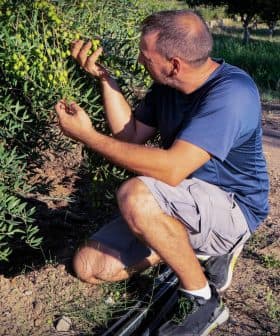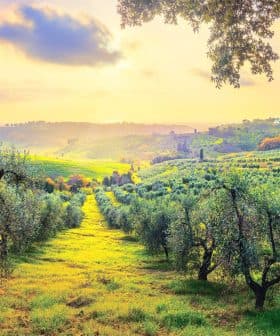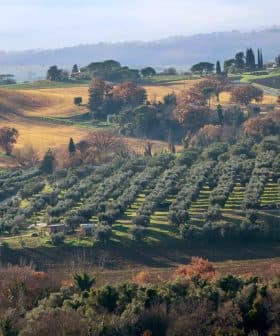Olive Oil Sales Jump While Italian Economy Shrinks From Covid-19
Italians are shopping in masks and gloves, but they're still shopping, and buying more than they used to. Olive oil sales in Italy have jumped 22 percent since Covid-19 hit, and stores are finding that Mediterranean diet staples are now the top sellers
The Italian economy could decline by 5 percent if the quarantine extends through April, but sales of staples like olive oil are increasing. Italians are purchasing non-perishable food more than ever, with sales of pasta, tomato sauce, and olive oil all rising significantly since the Covid-19 pandemic hit.
While experts predict that the Italian economy could decline as much as 5 percent if the country’s sweeping quarantine extends through the end of April, the sales of staples, including olive oil, are flourishing.
We ask all citizens to focus their buying choices on Italian products, to consume high-quality food and sustain the whole food chain.
According to statistics published by growers association Coldiretti, Italians are now purchasing non-perishable food more than ever.
In the weeks since the Covid-19 pandemic slammed Italy, sales of pasta have jumped by 51 percent, tomato sauce by 39 percent and olive oil by 22 percent. Rice, milk, sugar and frozen fish sales have each increased by at least 20 percent in the last three weeks.
These figures are in stark contrast to the discouraging projections for changes in Italy’s gross domestic product (GDP) due to the virus. The GDP is predicted to decrease as much as 2 percent in March. Experts warned that, should the lockdown be extended for a full month in April, Italy could record losses up to $161 billion and its 2020 GDP could dip 4 or 5 percent.
See Also:Covid-19 Lockdown Brings Critical Promotion Season to a StandstillEven so, canned food sales have risen by 22 percent, while sales of ethnic food and expensive imported products dropped 55 percent to record lows. Flour sales have increased by 80 percent, a statistic that has caused Coldiretti to posit that, when catastrophe strikes, Italians return to the basics and shop locally.
Italy’s mass quarantine is driving the shift in shopping habits, locals say. On March 11, the government shut down all restaurants for two weeks, and the entire country remains a quarantine “red zone,” permitting citizens to leave their homes only for emergencies or to buy food.
“Many Italians used to buying groceries every day: fresh food, dairy and bread, but now they are changing their habits,” grocery store manager Lara Carrai told Olive Oil Times. “They buy food that they can stock in their houses or at least food that will last for several days for the whole family, so they do not have to come back for a week or so.”
Carrai, whose store is in one of the hardest-hit regions near Milan, said that in the early days of the epidemic, people flooded stores and bought them out of essential items. As the initial panic has subsided and people have become used to their new restrictions, shoppers have begun coming in for a few days’ worth of groceries, focusing on staples like pasta and olive oil, she said.
Farming industry leaders are appealing to Italian citizens to support local farmers and food producers by buying Italian.
Enrico Allasia, Piedmont regional president of the farmers’ federation Confagricoltura, wants Italians to be aware of the negative impact Covid-19 will have on the economy, and to realize that their buying habits can play a role in stemming that effect.
“We ask all citizens to focus their buying choices on Italian products, to consume high-quality food and sustain the whole food chain,” Allasia said.
Bruno Piraccini, manager of Italian food company Orogel, warned that although farms and factories are still operating in full-day shifts, production and distribution timelines could see slowdowns due to precautionary measures that reduce productivity levels.
“There are prevention measures, like checking workers’ temperatures when they reach the farm. We rescheduled our shifts to avoid having too many workers inside our installations at the same time. We work on a 24-hour schedule and while workers take their break to eat, other workers must disinfect the working areas,” Piraccini said.









